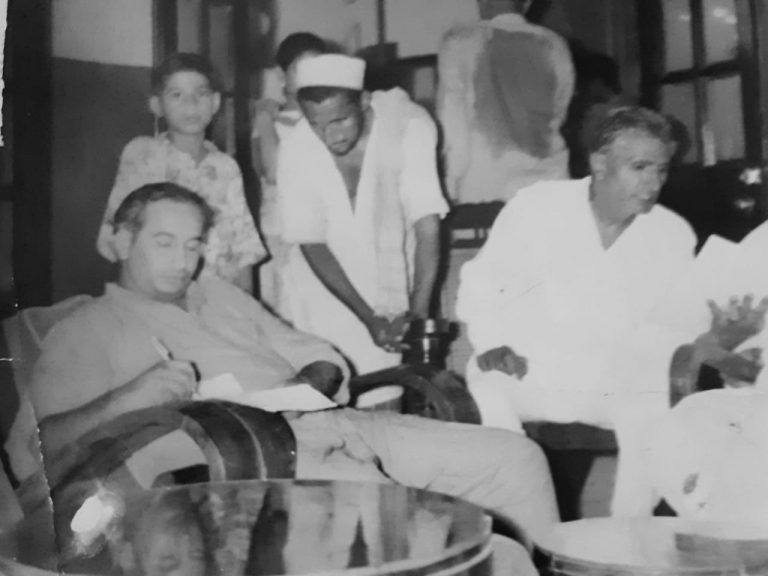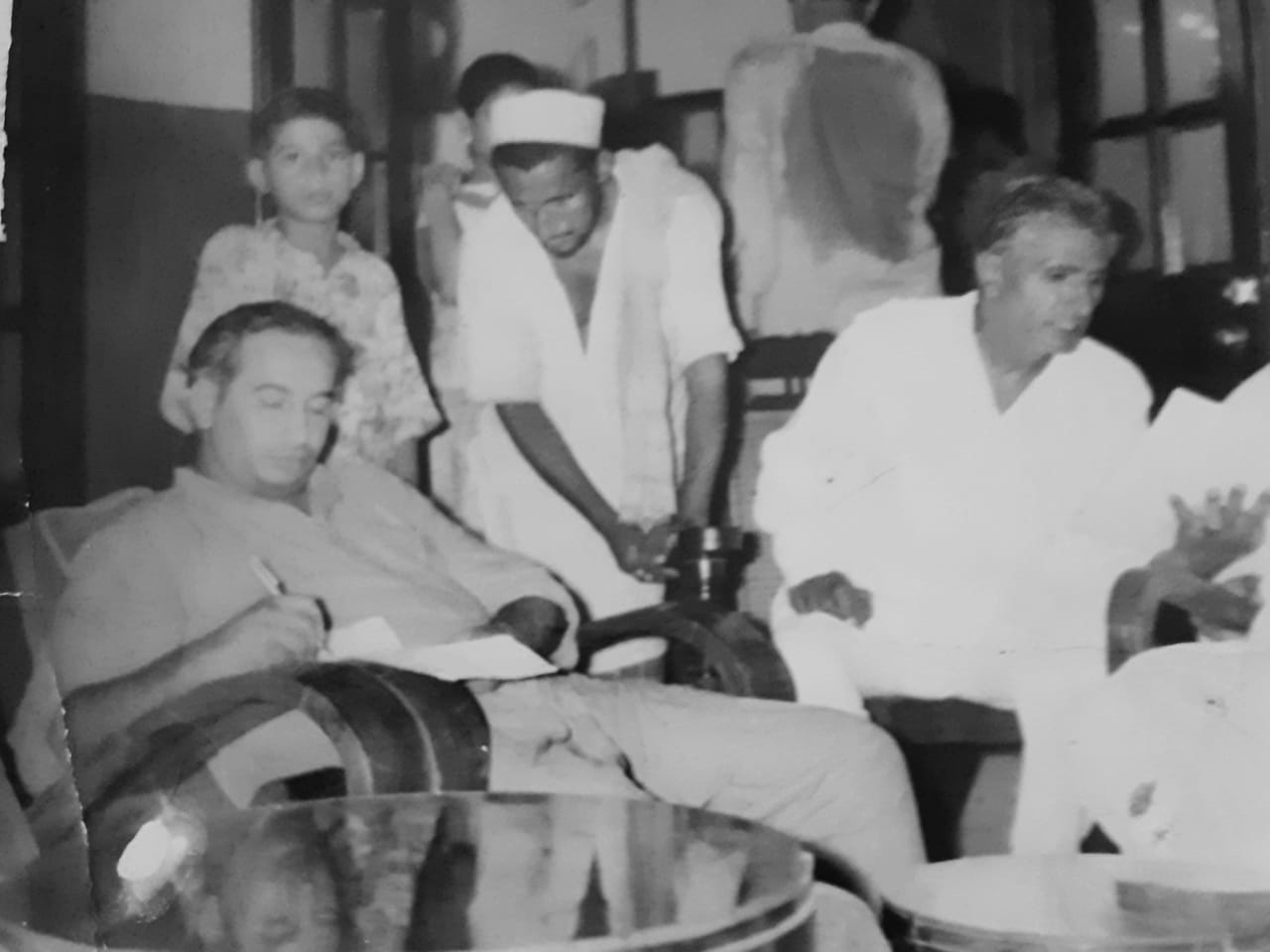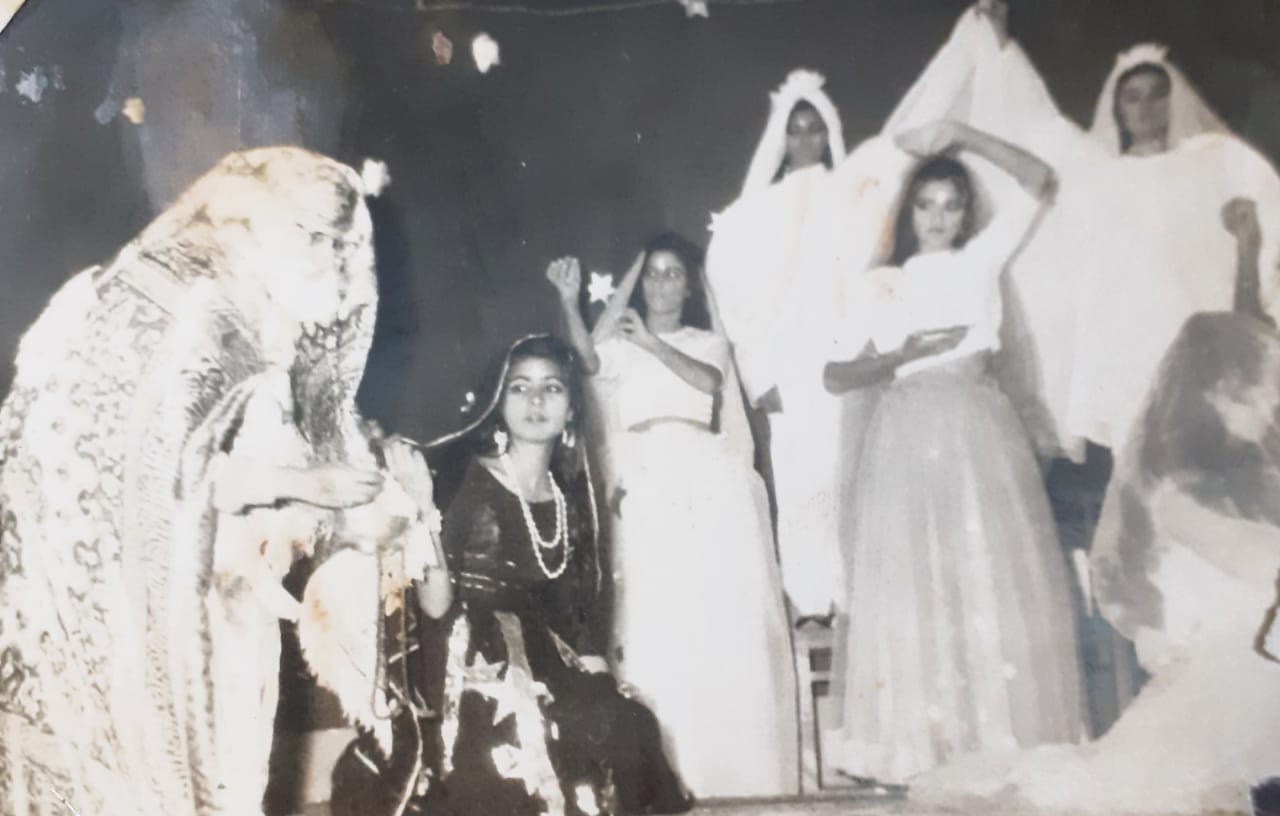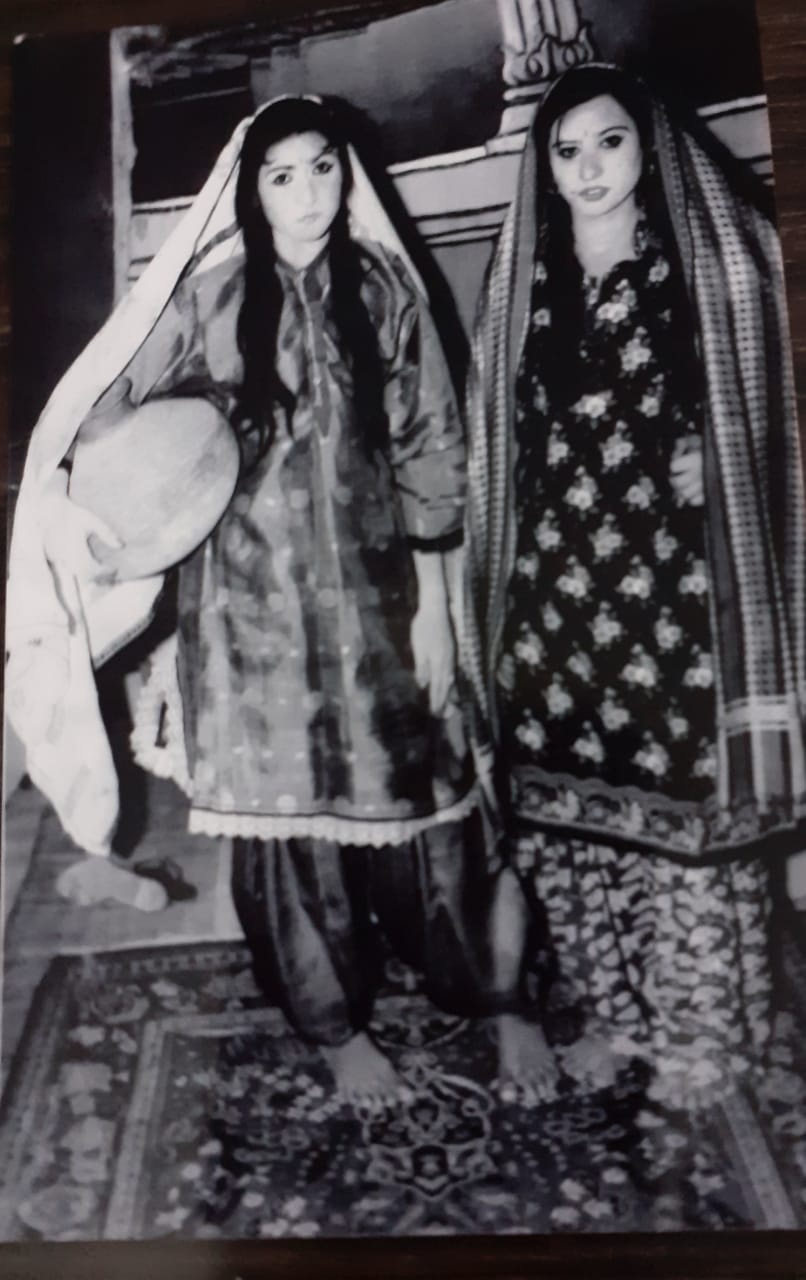

Veena Shringi, hailing from Sindh and settled in Delhi, India, is a multi-faceted personality – a poetess, writer, broadcaster, and social worker. She is author of 31 books. Her first book was ‘Kian Visariyan Verheechan’ (Can’t Forget My Loved Ones), the memoirs of her life from childhood to the time she migrated to India, published in Sindhi language in 1984. Now the English version of the same book is under publication. Sindh Courier is publishing a few chapters of book with consent of the author.
The Demagogues
The demagogues, who claimed to be the champions of religion and society, had always been there, who instead of trying to overcoming the shortcomings of the society, try to destroy the harmony by spreading rumors, being the mischief-mongers by nature. There were four so-called good people called ‘Sarpanch’, who, with the support of their leader called Mukhi, had taken upon themselves to reform the society as a whole. They had a habit of always attacking the honor of others rather than helping the needy. It seems this is the way the world goes about – pan calling the kettle black. The five were happy to be known as ‘reformers’ of the society, while the reality was the other way around. They expected the poor people to be present before them with their hands folded standing in front of them in their court. They took it as their right to insult the poor and their families.
This exercise used, to begin with, a sitting in the Otaak of one of the demagogues of the society. They used to insult someone with the accusation of his sister having an affair, or attacking someone’s daughter’s character. They used to advise like your daughter has come of age so get her married quickly. The marriage should take place immediately even if the boy is lame or one-eyed, or he may be an old man with eight children and so on. The poor gullible people used to listen to them and out of fear used to follow what was told, taking it as their destiny. People burdened by their limitations used to accept such things as provided by providence. Even strong men were afraid of these powerful men and used to succumb to their dictates. Even otherwise ordinary people accept the things as they come, accepting is the will of Almighty God. Everyone was affected by some of the other unfortunate situations – some woman had an affair with her brother-in-law; some had an affair with father-in-law or someone had eloped with the worker in the family. I am avoiding discussing such things, but these were day to day affairs in society. To err is human. It is not the job of any man to pronounce another guilty. The power to hold anyone guilty is invested in God only. All men are guilty. If at all someone is free of any guilt then that person can be an angel only. I am talking about a scavenger woman in the town of Shahdadkot. It will not be proper to name her. She had several lovers, but she married a respectable person in the town. Such things were the talk of the town, especially at pious and religious places. Women of the town wanted to prevent their husbands from getting trapped in such predicaments. With these intentions, women used to visit Mullas and Bibis to get sacred threads to ward off such threats. One such con man came to the town. Several Hindu and Muslim women got influenced by this person and he took advantage of gullible women. Later the so-called saint was apprehended in Quetta and brought to our town in handcuffs.

I hope and wish such women may learn to avoid getting trapped in such situations. One day a woman came to my mother. She complained that her husband was often in the company of a woman in our neighborhood. My mother used to advise the women to ignore such small matter, lest their home life gets ruined.
We had a well in our compound. With the permission of my mother, women of our neighborhood used to come and wash clothes at our well. But, my mother had told them firmly not to take bath at our well. While washing clothes their dresses of muslin used to get wet. Through wet clothes, one could see their naked bodies. Same was the situation at a nearby canal near the railway line. But, Sindhi Muslim men were decent. They used to turn their face to avoid looking at women in wet see-through dresses. After some time, the municipal corporation provided water in homes through pipelines. After this, the menace of women in see-through wet clothes came to an end.
It was a custom in the town to pay a visit whenever there was a marriage or a death. It was a social requirement to visit the bereaved family. The visiting women used to mourn by weeping in a loud tone. At times the moans of the visiting women were louder than the women of the bereaved family. The funny part is that the women after mourning for some time used to get busy with the gossip.
When my grandfather passed away, lot many women came to our house lamenting loudly. My mother did not believe in this sort of mourning. One woman was insisting upon my mother to moan loudly. She started narrating good things in the life of my grandfather so that my mother starts crying. My mother reprimanded the mourning women and told them to stop it.
At the time of Thadhdi, that is the birthday of Lord Krishna, it is customary to gamble. In the homes of a few Hindu women, heavy gambling was practiced. The stakes were as high as one rupee for blind and five rupees for a show. Who did not have enough money, used to play with almonds as play tokens? We, children also wanted to take part in gambling. But our parents were totally against it. Hence they used to stop giving money to us well before Thadhdi. There was also a warning that if seen with playing cards, will invite severe thrashing. But all the same, we used to sit beside the people playing cards to watch. Hey used to scold us if they got bad cards, calling us bad luck.
My brother Ashok had a job in Quetta. He is a smart fellow. Now he is in Spain. He loved and trusted us. He also used to sit with the neighborhood women and played cards. He used to give us money, so that we may not tell our parents about his gambling. He used to start the game with a few rupees and increased the stakes to a hundred rupees. After winning huge money he used to get up, but the women never let him go. In the meantime, there was a message from my father to fetch the children wherever they may be. After receiving the message, we all used to run to reach home. Men folk also used to indulge in heavy gambling. Police were aware of the places where gambling was going on. The police also ignored the gambling dens from where they got a good amount of bribe. But, they used to raid the places where they were not paid a bribe. Once it so happened that in the night people came to my father. Police also followed them. Police started beating the gamblers and confiscated their watches, cash and gold chains. Some smart fellow slipped his gold buttons in my father’s pocket. Thus, his gold buttons were saved. Police officers used to tell my father “Maharaj, please do not protect these fellows; it is a loss to us.”

There used to be a compound of Hindu family in front of our house. There some Muslims used to stay. Every day there were fights. It was a nuisance. Somehow we managed to get that place vacated. In Muslims the marriages are problematic. Irrespective of the vast difference in the ages the marriages were solemnized. It was an ordinary matter in Muslims to have two or three wives, as it is permitted by their religion. This led to family disputes. They used to treat women as property and there used to be trading of women. Due to illicit affairs, there used to be murders. After committing murder they used to get acquitted and once again they used to indulge in murders.
Muslim landlords believed in vendetta. Murder must be avenged with a murder … that was their motto. They would vow not to wear a turban until the murder is not avenged. Near our house there used to live one Illahi Bux Khokhar. He was attacked several times. His son was also attacked several times with a gun. Somehow both remained safe. The son was attacked so severely that his face was disfigured. At last, the son was murdered. His father Illahi Bux Khokhar liked me a lot. At the occasion of Mahalaxmi he would say “Veena, where are my cookie snacks?” Even now I hear his words. Even now I can see his face … long grey beard, fair skin, brown eyes, big salwar with several gathers, white muslin shirt, and on top of it a big turban. I try to forget that face but always fail.
_______________________
(Translated from Sindhi language by Ram Daryani)
Click here to read Foreword of the book
Click here to read Chapter 1
Click here to read Chapter 2
Click here to read Chapter 3
Click here to read Chapter 4
Click here to read Chapter 5